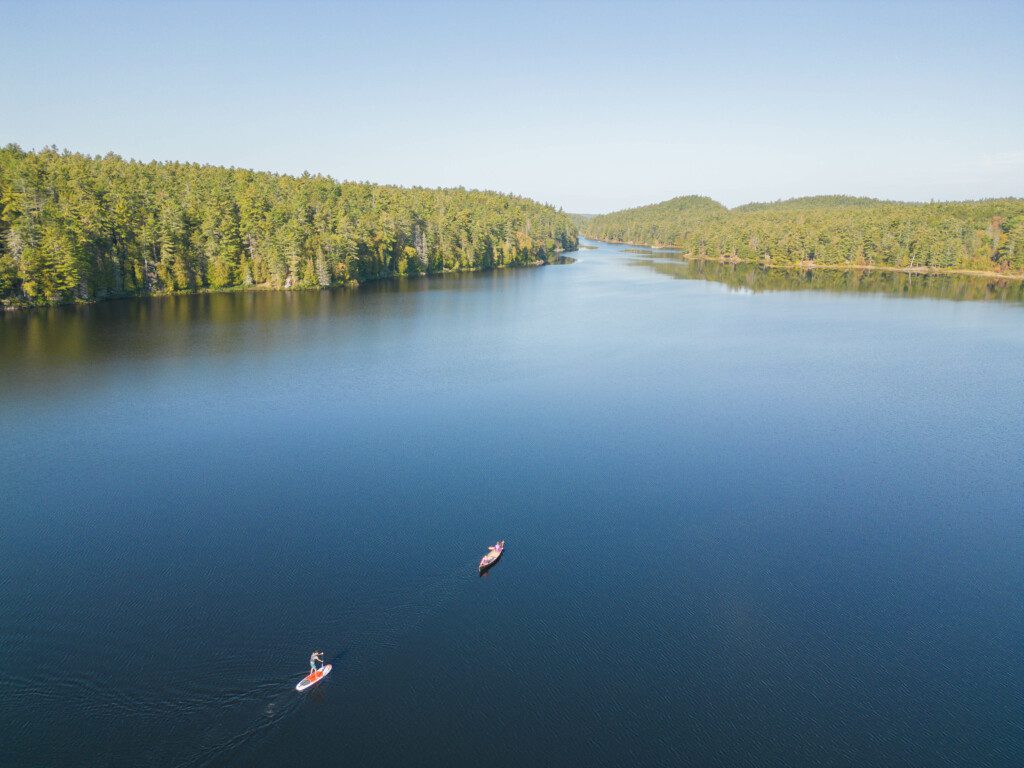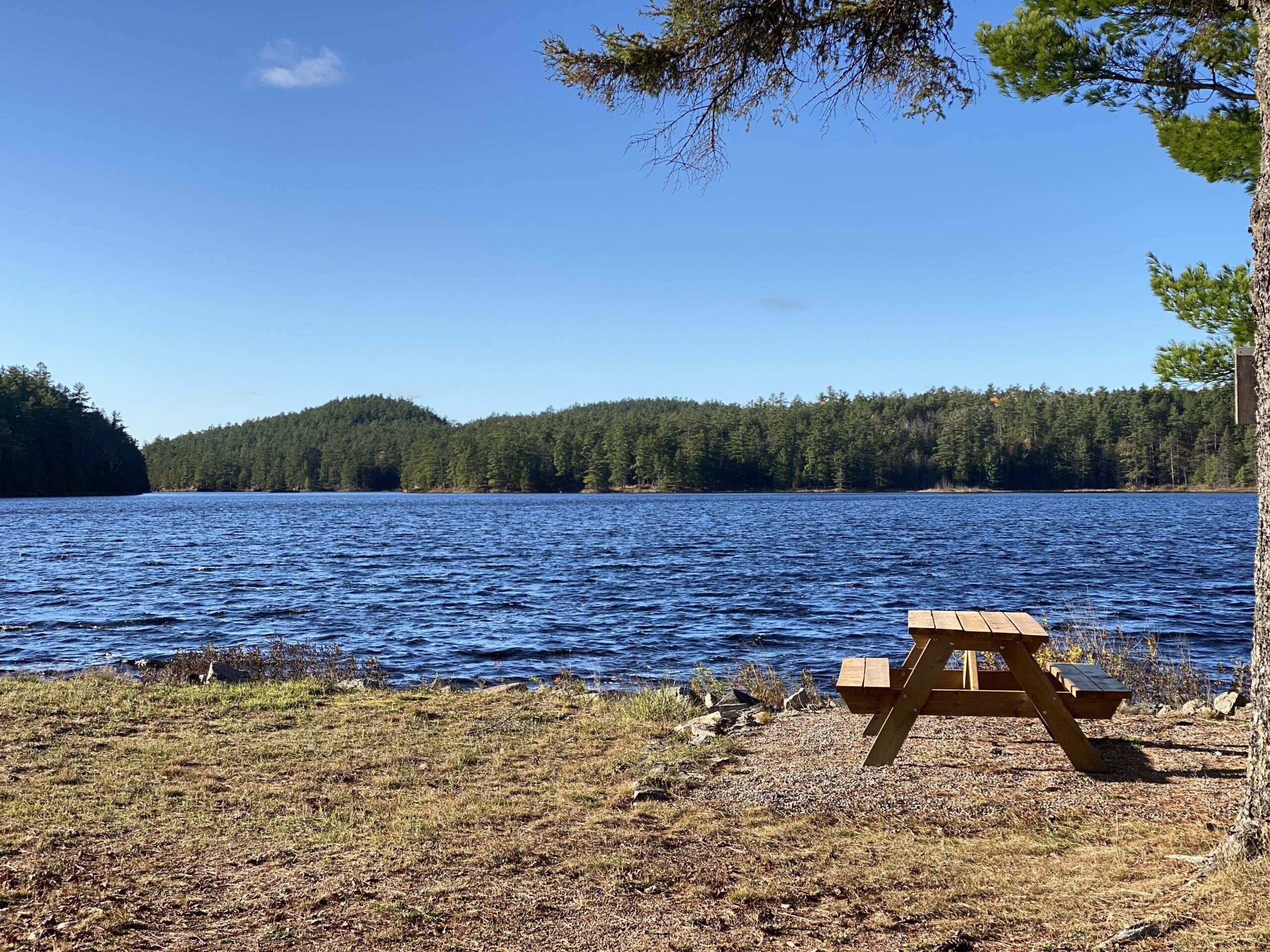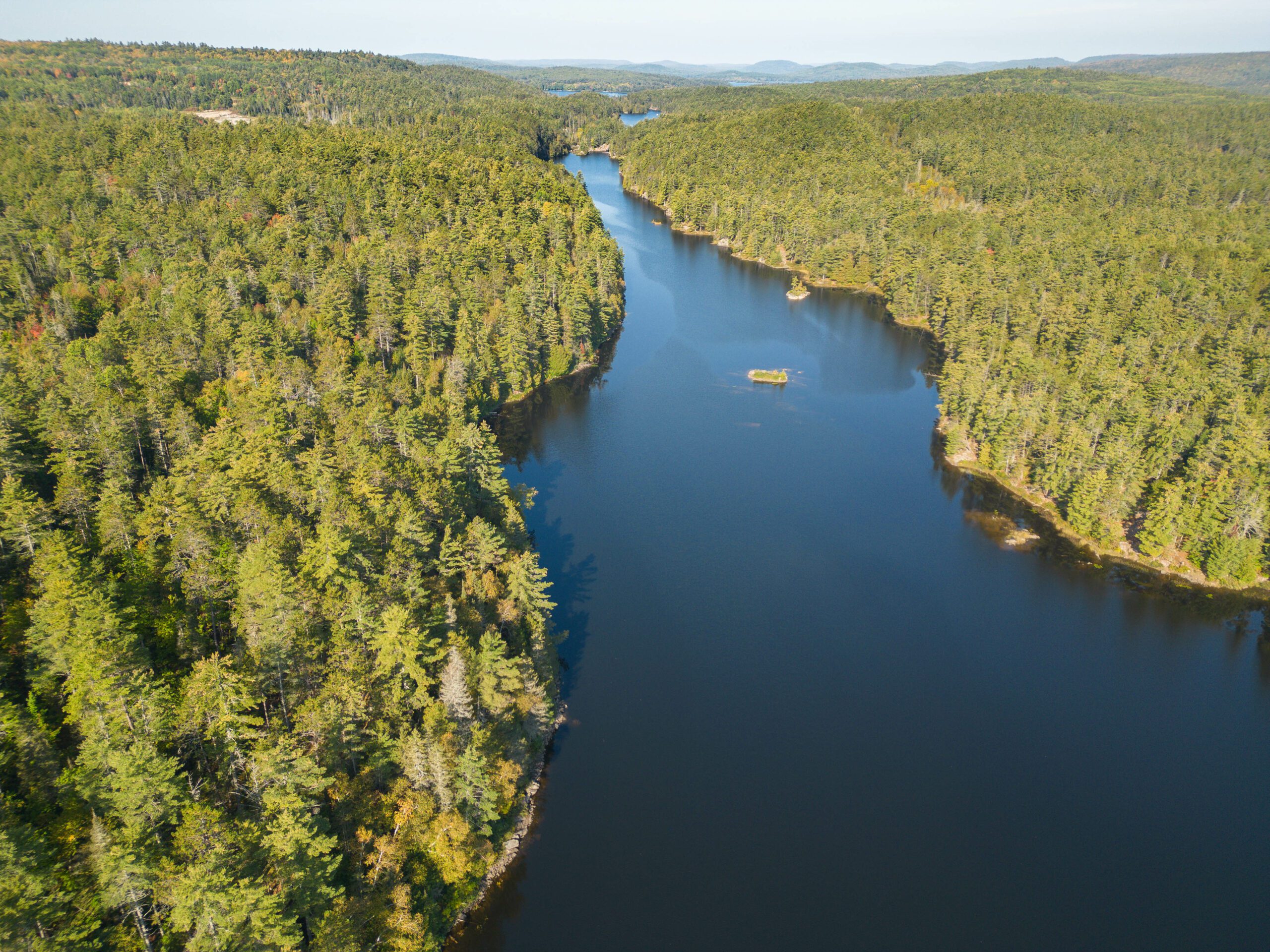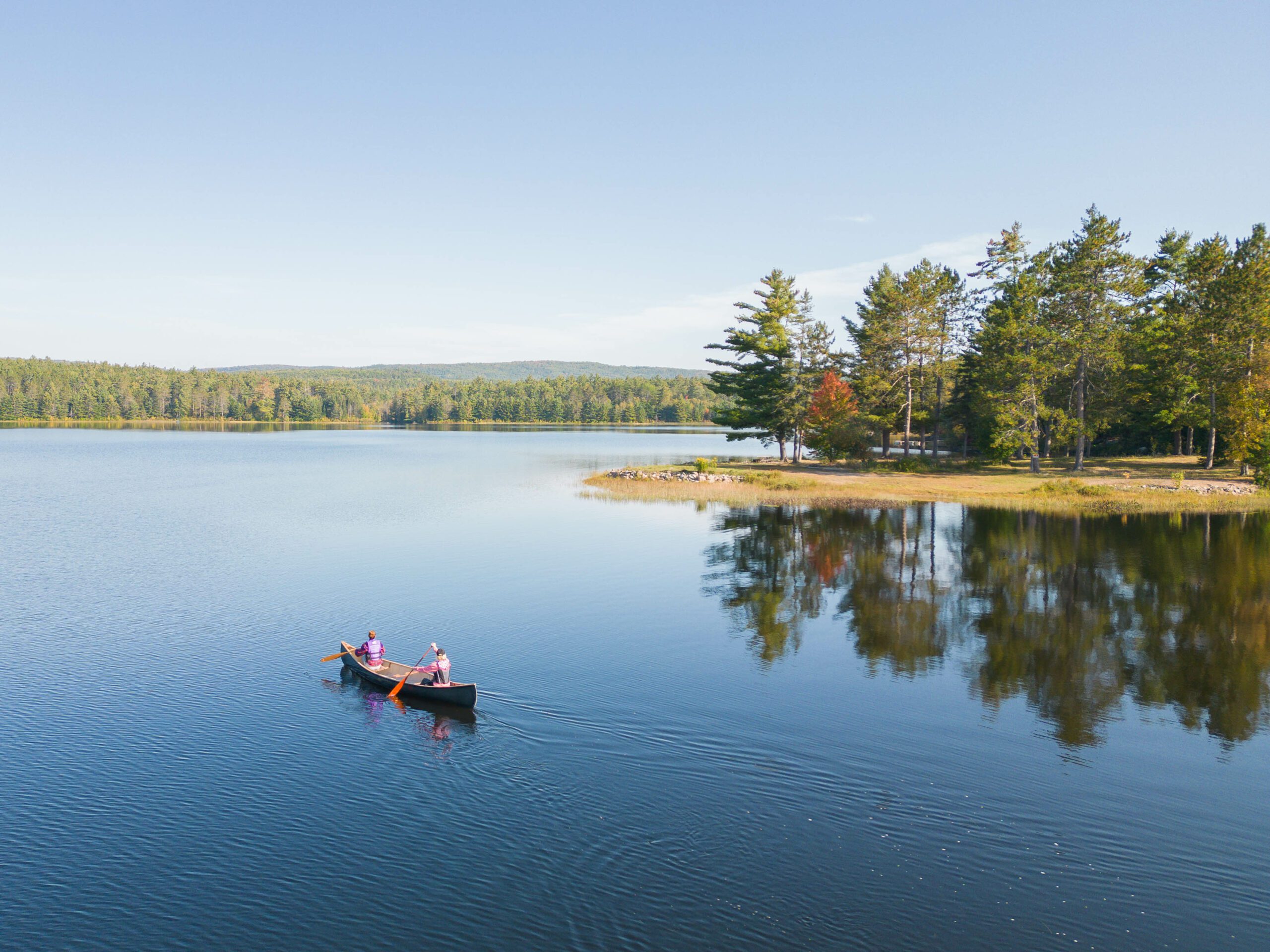Living on the water with an unsupervised shoreline, we take water safety seriously. We hope all of our guests can enjoy the water safely. Whether swimming in a pool, enjoying the ocean waves, or paddling through Pimisi Bay, here are 10 tips to help you stay safe in and around the water.

1. Learn to swim: Knowing how to swim is the best way to stay safe in the water.
It is entirely possible to enjoy the water without going into it. Laying on the beach, watching the water, or reading a book at the shore are all excellent possibilities. If you wish to go in or onto the water, it behooves you to know how to swim. I’m not saying your boat will capsize or sink. I am saying that if it does, it will suck for you (and whoever was unfortunate enough to take you out in the boat) if you start to drown. While we always hope for the best, and maybe your best is convincing our otters to swim you to shore, please prepare for the worst, which includes the possibility that water can kill you if handled incorrectly.
2. Wear a life jacket: If you're not a strong swimmer, or if you're boating, wear a life jacket.
You may have thought in my last point, “But if I wear a life jacket, I will be okay.” For the most part, a life jacket will dramatically increase your chances of survival on the water. Nothing is guaranteed, but it will give you your best chance. If you are not on the water to swim, even if you are an Olympic swimmer, you should wear a life jacket. Currents, waves, and accidental injury when you fall out of the boat can all cause even the best swimmer to fight for their lives. However, please remember that life jackets must be worn properly to be effective, cold water can still cause hypothermia regardless of your life jacket, and if you are floating on your stomach in your life jacket, you can still drown.
3. Swim with a buddy: Always swim with a friend or family member, never alone.
The obvious reasons why this is a good idea include someone to help you if you begin to drown, someone to assist if you get a muscle cramp, and even someone to help you fight off the angry geese that may feel you are on their territory. It can be extremely dangerous to be alone on the water. Currents and waves take anybody down. They don’t discriminate based on skill level, size or talent. To end this on a happier note, if you swim with other people, you can play games in the water, race, give each other tips to improve your form or have an adventure.
4. Use sunscreen: Protect your skin by applying sunscreen before going outside.
Melanoma is the sixth most common cancer in Ontario and one of the most preventable. Even if there are clouds in the sky, the UV rays from the sun can still harm you. Dermatologists recommend wearing sunscreen outside year-round- even in the winter. In the best-case scenario, inappropriate sun exposure will turn you into a wrinkly tomato who looks like a thousand-year-old wizard who has come to curse the wicked when you are only in your 40s. Worst case scenario, you have to deal with cancer. There are so many spray-on, non-sticky, and nice-smelling sunscreens out there now you don’t have an excuse not to wear any. Make sure to reapply at least every 2 hours and always reapply after you have been in the water.











5. Stay hydrated: Drink plenty of water to avoid dehydration while you're in the sun.
As my husband always says, once you are thirsty, it is too late- you are already dehydrated. Once the signs of dehydration set in, your body has already lost a lot of water. With extreme heat, there is little time between running low on water and when you can start to experience heat exhaustion or heat stroke. You can help your body stay strong and healthy by taking breaks from physical activity every once in a while to cool down, relax in the shade, wearing a hat, keep hydrating, make sure you eat, and try not to be outside during extreme heat events.
6. Always follow the rules when interacting with bodies of water.
If you attend a public body of water (be that a pool, a beach, a waterpark, or a lake), there will be rules somewhere about appropriate behaviour. If you can’t find rules (through a posted sign, on their website, or by asking a staff member), then you are probably trespassing on private property. Please don’t use hot tubs that don’t belong to you. Rules are made for the safety of everyone using the water to ensure a good and safe time.
General tips that I find can be applied to any body of water:
- Don’t run through crowds or on slippery surfaces
- Never leave children unattended
- Any person using watercraft must wear a life jacket
- If the waterfront is unsupervised, it is “use at your own risk.”
- Leave electronics on the shore in a secure location (such as with a friend or in a locked vehicle)
- Never swim alone
- Stay in designated swim areas
- Enter the water feet-first
7. Avoid alcohol: Alcohol and swimming don't mix.
As an adult, sitting on the beach and partaking in a cold drink can be lovely, but water requires a clear head, non-impaired thinking, and reaction time. Alone, with friends, with children, it doesn’t matter- do not go into the water if you are not sober. People say they know their limits and are fine, that accidents only happen to other people. There are “first-time” tragedies every month. Usually when water is involved, the last tragedy is also the first. Do me a favour, no matter how amazing/superhuman/competent you are, only go in or on the water if you are completely sober. If you want to boat or swim, bring lemonade or some fancy water. You know what, upgrade your fancy water by adding a side of cake, or maybe a hotdog, or both.
8. Supervise children: Keep a close eye on children when they're in or near the water.
Your child could be the best swimmer on the planet, but, like adults are warned to always swim with a buddy, children can be swept away by currents, have muscle cramps that inhibit their ability to swim, be approached by people they do not know who may not be nice people, or get lost in a crowd. You should always ensure someone you trust is watching your child in public, which is just as important in the water. No matter how mature or intelligent a child is, they are still a child. They are allowed the whimsy and freedom to have fewer cares in the world and not take warnings as seriously as an adult, as they don’t have life experience to reaffirm the dangers adults know to be reality. To end on a lighter note, if you are taking your children to a body of water, it should be to spend quality time with them. It makes sense to give them your attention, teach them something new, play a game, or just be there to experience a precious moment as they grow up.
9. Be aware of weather conditions: Keep an eye on the weather and avoid swimming during storms.
Storms can come out of nowhere. We have all experienced a beautiful day with blue skies that suddenly become torrential downpours. How about those sun showers that confuse everyone? If you are far out on the water- especially on a boat- you may not have enough time to get to shore before danger strikes. While dangerous weather can come out of nowhere, if there are warnings that the weather will turn later in the day, it’s not worth the risk to go far out on the water now when the skies are clear. If it helps, pretend that a storm means a giant sea monster will emerge from the depths and eat you- because that level of pain and suffering is essentially what people suffer when they are out on the water during a storm.
10. Learn CPR: Knowing CPR can save a life in an emergency. Consider taking a class to learn this life-saving skill.
CPR is a valuable skill that is better to learn and never use than not learn and need. The job of CPR is to keep blood pumping from the heart to the brain while paramedics arrive to assess and help. Every second counts in an emergency situation, as the more time that passes during a cardiac event without intervention increases the potential for long-lasting damage to the brain and even death. You can take CPR classes with the Canadian Red Cross, and occasionally for free through your volunteer organization or employment.
Conclusion: Water is a beautiful, vital, and sometimes fun part of our lives with risks and rewards. As long as we play smart, there is so much potential to have positive experiences in, on, and around the water. As you plan your outdoor excursions, consider the potential risks associated with your activities and account for them. It is always better to be overprepared than underprepared.






